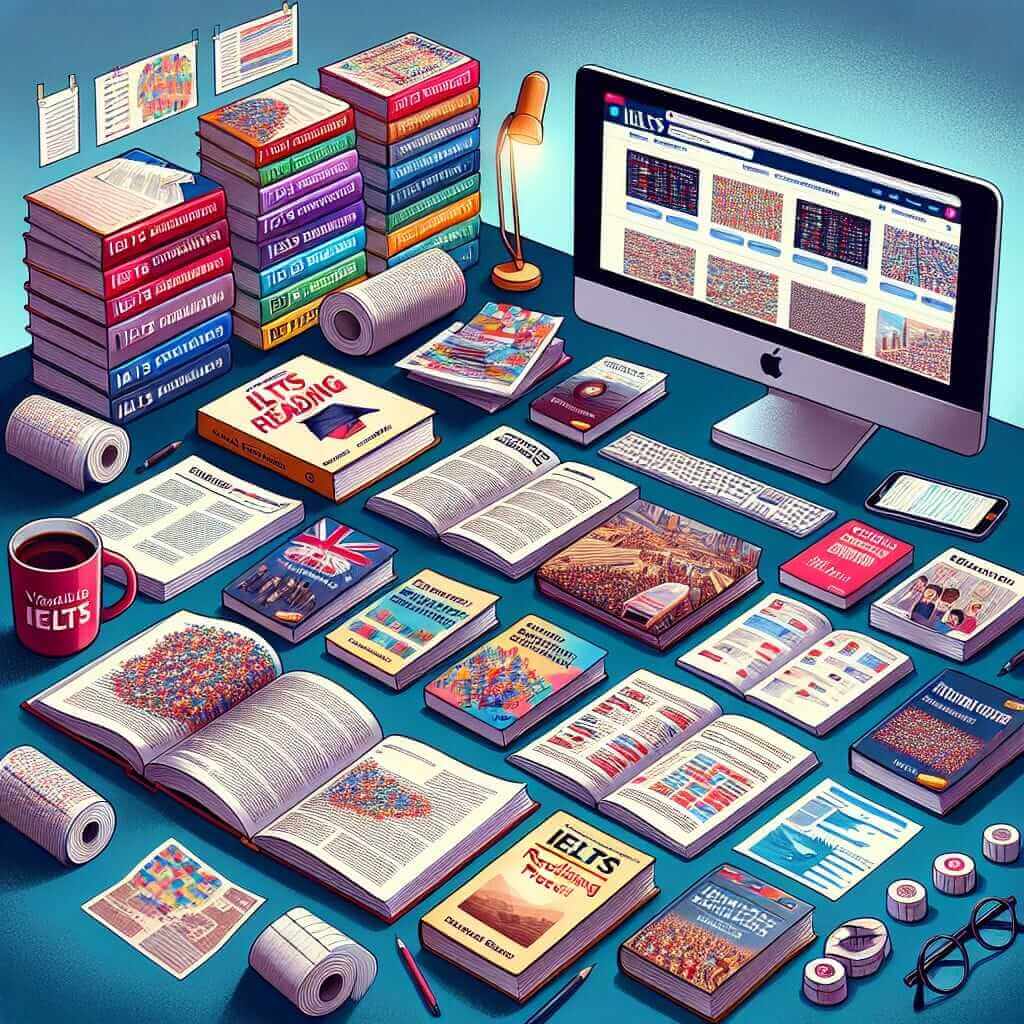As an IELTS instructor with over 20 years of experience, I often get asked: “What should I read to prepare for IELTS?” It’s a smart question! The IELTS exam, particularly the Reading section, evaluates your ability to comprehend complex texts on diverse topics. Choosing the right reading materials can significantly impact your performance.
The Importance of Strategic Reading for IELTS
Strategic reading goes beyond simply understanding the words on a page. It involves:
- Identifying different question types: IELTS Reading features a variety of question types like multiple choice, matching headings, summary completion, etc. Familiarity with these formats is crucial.
- Scanning for specific information: You need to locate key details quickly and accurately within a passage.
- Understanding the author’s purpose and tone: This helps you interpret the text’s overall message and answer inference-based questions.
- Managing your time effectively: The Reading section is time-pressured, so efficient reading skills are vital.
What to Read to Boost Your IELTS Reading Score
The key is to diversify your reading material while focusing on IELTS-relevant content:
1. Academic Articles:
- Journals: Look for publications like “National Geographic,” “The Economist,” “Scientific American,” or “New Scientist.” These offer high-quality articles on science, history, technology, and current events.
- University Websites: Many universities provide free access to research papers and academic essays online. Explore topics that genuinely interest you.
Why these are beneficial: Academic texts expose you to the formal language, complex sentence structures, and specialized vocabulary commonly found in IELTS Reading passages.
2. Books:
- Non-fiction: Choose books on subjects like history, science, psychology, or sociology. Biographies and autobiographies can also enhance your vocabulary and comprehension skills.
- Fiction: While not directly related to IELTS topics, reading well-written fiction can improve your overall reading speed, vocabulary, and ability to follow complex narratives.
Why these are beneficial: Books help you build sustained reading stamina, which is crucial for tackling lengthy IELTS passages.
3. Newspapers and Magazines:
- Quality Newspapers: “The Guardian,” “The New York Times,” and “The BBC News” are great options. Focus on articles on current events, science, technology, and culture.
- Magazines: Explore magazines related to your interests, such as “Time,” “Newsweek,” or “The Atlantic.”
Why these are beneficial: Newspapers and magazines expose you to a wide range of topics and writing styles, similar to the variety found in the IELTS Reading test.
4. IELTS Practice Materials:
- Official IELTS Practice Tests: Essential for familiarizing yourself with the exam format, question types, and time constraints.
- IELTS Preparation Books: Choose reputable books that offer authentic practice passages and answer explanations.
Why these are beneficial: There’s no substitute for practicing with actual IELTS materials to build your confidence and exam-taking strategies.

Examples from IELTS Reading Passages:
Here are some examples of topics you might encounter:
- The history of photography
- The impact of climate change on marine life
- The development of artificial intelligence
- The benefits of bilingualism
By reading widely on these and similar themes, you’ll be better equipped to understand and analyze IELTS Reading passages.
Tips for Effective IELTS Reading Preparation:
- Read actively: Highlight key information, take notes, and summarize paragraphs in your own words to enhance comprehension.
- Focus on vocabulary building: Keep a notebook to jot down unfamiliar words and their definitions. Regularly review these words.
- Time yourself: Practice reading passages under timed conditions to improve your speed and accuracy.
- Analyze your mistakes: After each practice test, carefully review your errors to identify areas for improvement.
Conclusion:
Remember, there’s no magic formula for IELTS success, but a well-structured reading plan can dramatically improve your skills. By incorporating a variety of academic and general interest materials into your reading routine, you’ll be well on your way to achieving your desired IELTS score. Good luck!